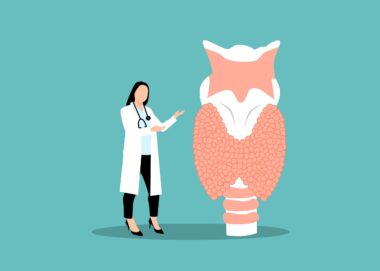Balancing Estrogen and Testosterone Through Nutrition
Nutrition plays a crucial role in regulating hormonal balance, particularly for estrogen and testosterone. To achieve a healthy equilibrium, focus on consuming nutrient-dense foods that support hormone production. Foods rich in healthy fats, such as avocados and nuts, can significantly enhance hormone levels. Include a variety of colored fruits and vegetables in your diet to provide essential vitamins and minerals necessary for metabolic processes. Fiber-rich foods also contribute significantly by aiding in the elimination of excess estrogen, promoting a better balance. Incorporating whole grains can regulate blood sugar levels, which is important for hormonal health. Aim for a balanced plate that includes protein, healthy fats, and carbohydrates to enhance your energy levels and hormone production. Consider fermented foods like yogurt and sauerkraut, as they can improve gut health, which in turn affects hormonal balance. Staying hydrated is also vital; water helps transport nutrients and supports metabolism, which is linked with hormone levels. Identifying and incorporating these food sources into your daily meals can provide significant benefits for your hormonal health and overall well-being.
In addition to the foods you eat, the timing of your meals plays an essential role in managing estrogen and testosterone levels. Eating regular meals can help maintain stable insulin levels, which is vital for hormonal balance. Skipping meals or going on extreme diets can lead to hormonal imbalances, particularly in women, which may result in various health issues. Focus on consuming meals rich in antioxidants, such as berries and green vegetables. These not only protect your body from oxidative stress but also support hormone production and metabolism. Eating smaller, balanced meals every few hours can help mitigate spikes and drops in blood sugar. Introducing practices such as mindful eating can enhance digestion and absorption, which naturally supports hormonal balance. Furthermore, consider the inclusion of phytochemicals found in foods like flaxseeds and soy, which can help modulate estrogen levels. Employing a well-rounded approach combining quality nutrition with mindful eating practices can prove beneficial to hormonal health. Consistency is key; through dedication to nutritious foods and habits, you can foster a healthier hormonal landscape.
Important Nutrients for Hormonal Health
Certain nutrients are particularly important for supporting hormonal balance, especially when it comes to estrogen and testosterone. Omega-3 fatty acids are vital for minimizing inflammation and promoting hormonal health. Incorporate fatty fish such as salmon, walnuts, and chia seeds into your diet, which are excellent sources of these healthy fats. Additionally, magnesium, found in leafy greens, nuts, and seeds, is known for its role in hormone regulation. Ensuring adequate levels of vitamin D is also essential, as it has been linked to testosterone production. Sun exposure is a natural way to increase vitamin D; however, supplementation can be beneficial, especially in areas with limited sunlight. Zinc is another crucial mineral that supports testosterone production, with food sources including meat, shellfish, legumes, and seeds. Antioxidants, such as vitamins A, C, and E, help combat oxidative stress, which can adversely affect hormone balance. By focusing on a balanced diet rich in these essential nutrients, you can create an optimal environment for hormonal health, ensuring that your body operates at its best.
Emphasizing whole, unprocessed foods in your diet is critical in maintaining hormonal balance through nutrition. Processed foods often contain excessive sugars, unhealthy fats, and artificial additives that can disrupt your hormonal systems. Instead, prioritize fresh fruits, vegetables, whole grains, and lean proteins that provide the nutrients your body needs. Many people find that a Mediterranean-style diet rich in healthy fats, grains, and a variety of plant-based foods can effectively promote hormonal health. Pair these whole foods with a variety of spices, such as turmeric and ginger, which can provide additional anti-inflammatory benefits. Regularly consuming foods with fiber helps in the detoxification process by eliminating excess estrogen from the body, thus promoting a better hormonal balance. Keeping a food diary can help you monitor your intake and ensure you’re making choices that align with your health goals. Moreover, engaging in meal preparation can give you more control over your nutrition. By utilizing these methods, you can maintain a lifestyle that supports your hormonal balance ideal for both overall health and physical fitness.
The Role of Hydration
Hydration is another critical element to consider in your quest for hormonal balance. Staying adequately hydrated ensures that your body functions optimally and supports metabolic processes linked to hormone production. Water assists in nutrient transport and can influence your levels of thirst and hunger hormones. Aim to drink at least eight cups of water daily, but recognize that individual needs may vary based on physical activity and climate. Herbal teas can also offer hydration and come with added benefits, such as antioxidants and comforting properties. Certain beverages, like those containing caffeine, may disrupt hormonal balance if consumed excessively, so moderation is key. Electrolytes play a pivotal role in hydration, particularly potassium, sodium, and magnesium; include potassium-rich foods like bananas and spinach in your snacks. Hydration can also affect how well your body processes vital nutrients; therefore, it’s essential to ensure your water intake is sufficient. Educating yourself about the importance of hydration and incorporating it into your daily routine is an effective way to support hormonal health, enhance energy levels, and improve your overall well-being.
Physical activity complements nutritional efforts toward hormonal balance; combining a healthy diet with regular exercise significantly impacts overall health. Engaging in moderate-intensity workouts can increase testosterone levels in both men and women while simultaneously helping to lower excess estrogen levels. Strength training is particularly effective for building lean muscle mass, which, in turn, elevates metabolic rate and hormone production. Prioritize consistency in your exercise regime; aim for at least 150 minutes of moderate exercise weekly, with muscle-strengthening activities on two or more days. Engaging in activities like yoga or pilates can enhance both strength and flexibility, further supporting hormonal health. Additionally, incorporating activities that reduce stress, such as walking, swimming, or cycling, can have a beneficial effect on cortisol levels, a hormone closely linked to overall hormonal balance. Remember that rest and recovery are equally integral to this process; sleep is crucial for hormone regulation. By prioritizing a fitness plan that aligns with your nutritional strategy, you can effectively enhance your hormonal health, fitness, and emotional well-being.
Conclusion: A Holistic Approach
In conclusion, adopting a holistic approach to nutrition, hydration, and exercise is vital for maintaining hormonal balance, particularly for estrogen and testosterone levels. Recognizing how interconnected these elements are can lead you to make more informed lifestyle choices. Emphasizing whole foods, exercising regularly, staying hydrated, and ensuring you receive adequate nutrients is effective for achieving balance. Understand that hormonal health is not a one-time effort but requires ongoing attention and commitment. Using strategies like meal planning, mindful eating, and physical activity can yield significant improvements in hormone levels over time. Additionally, listen to your body’s processes and adjust your diet and exercise accordingly. Consider consulting a nutritionist or dietitian for personalized guidance tailored to your goals. Fostering a balanced lifestyle will not only benefit your hormonal health but also enhance overall wellness, giving you more energy and vitality to tackle daily challenges. Ultimately, by prioritizing these aspects of your life, you can create a sustainable path to optimal hormonal balance and well-being.





